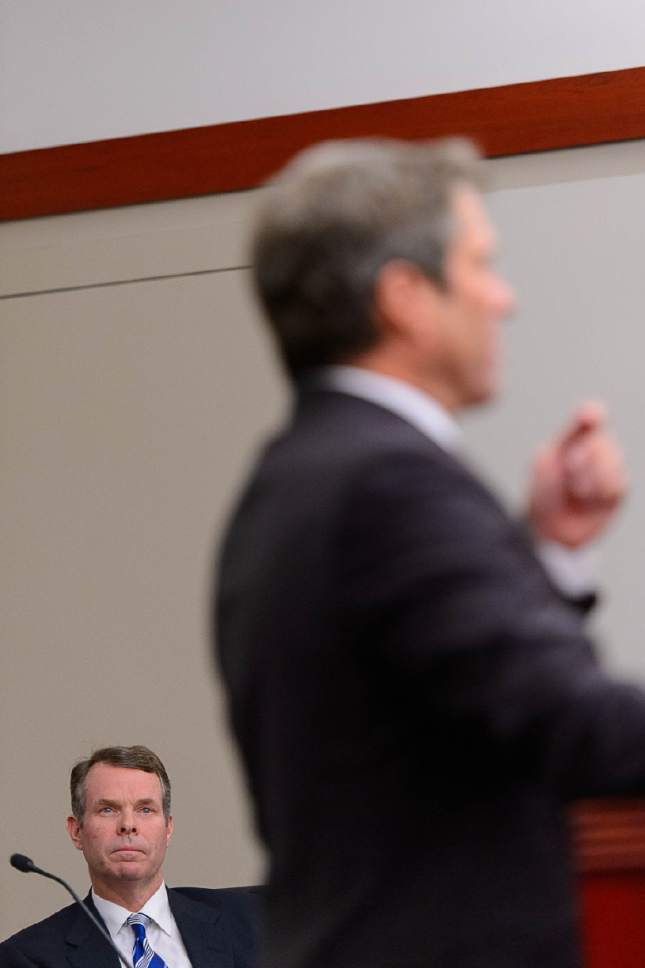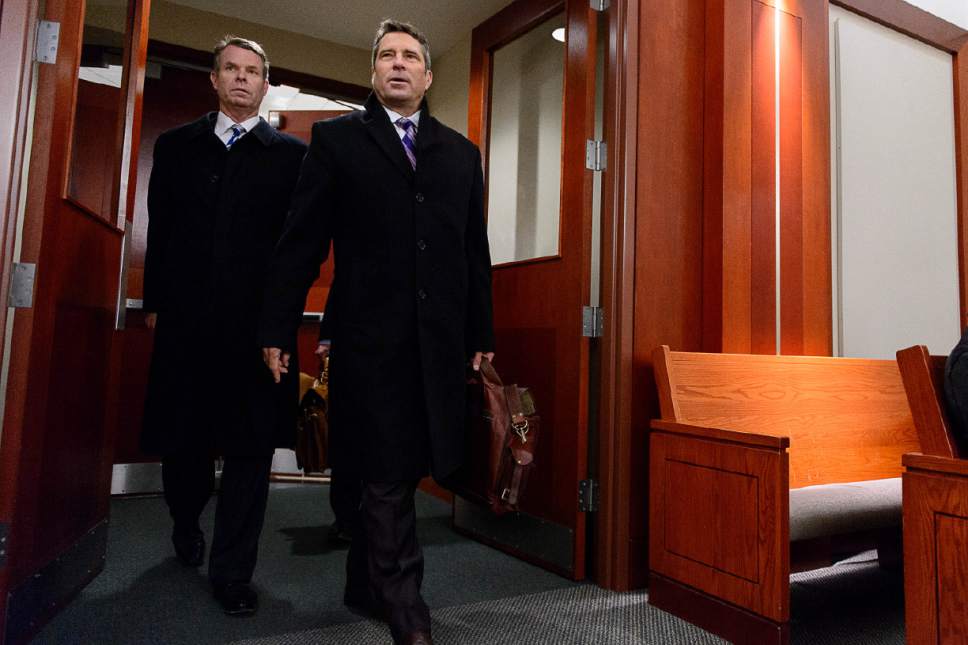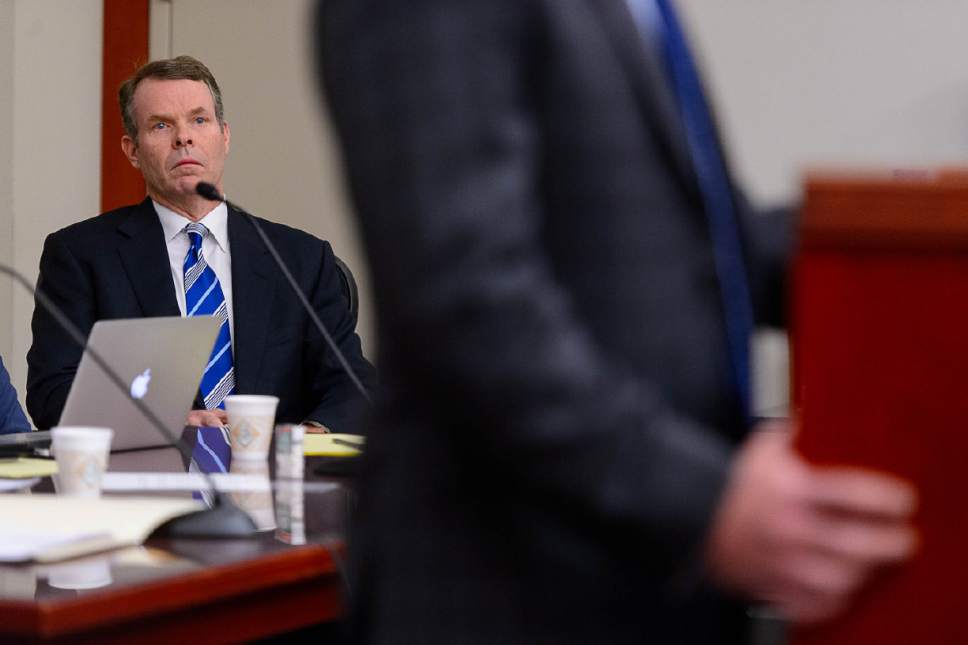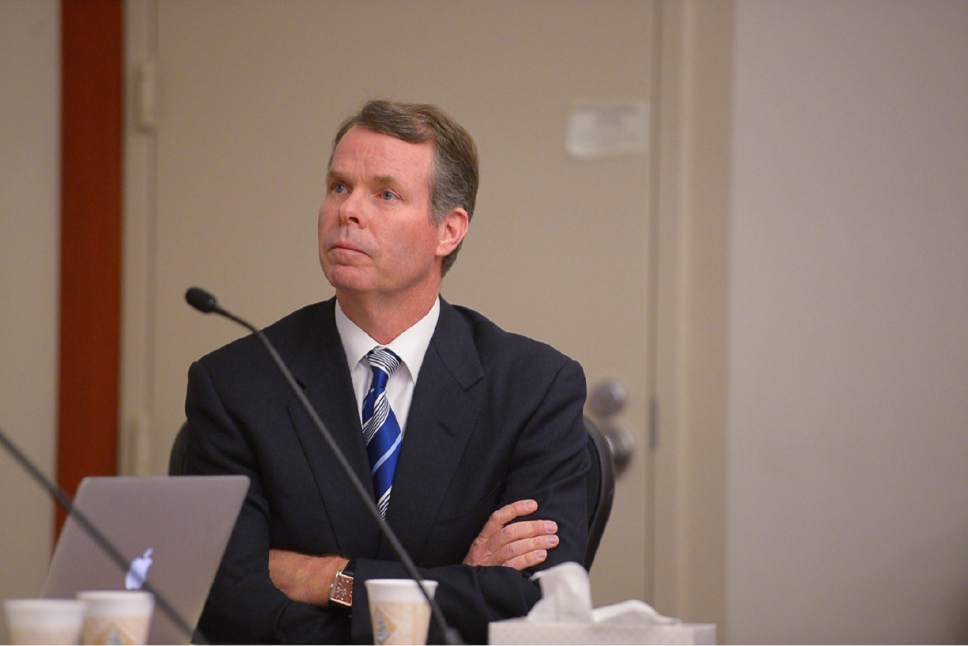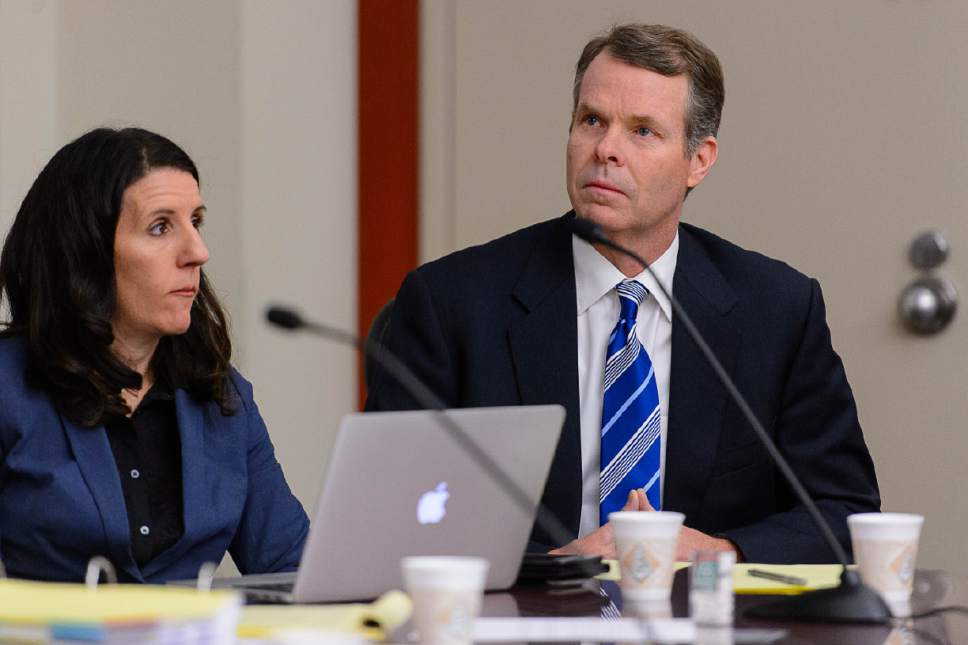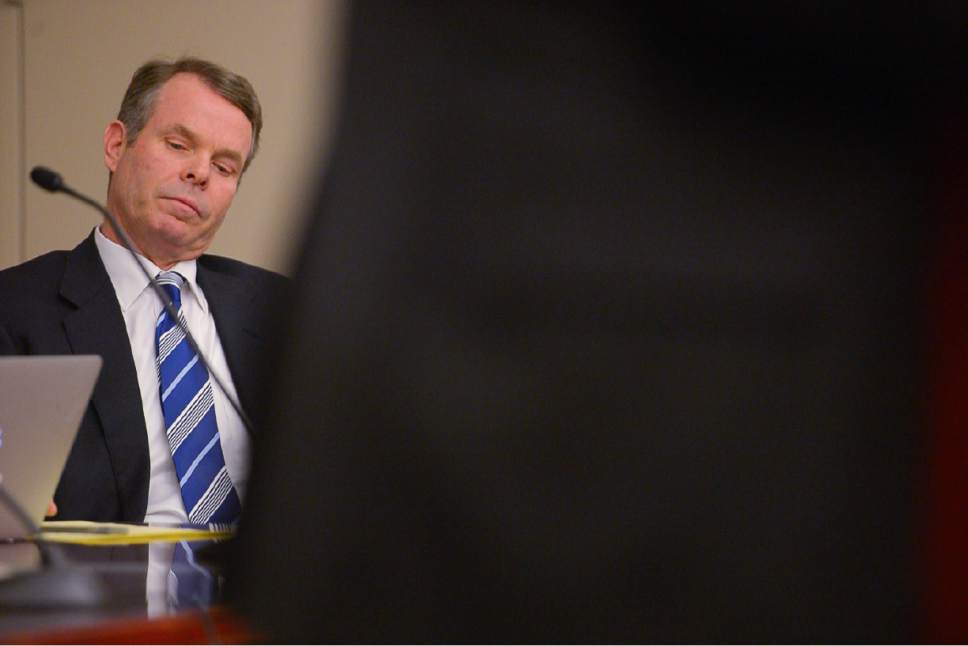This is an archived article that was published on sltrib.com in 2017, and information in the article may be outdated. It is provided only for personal research purposes and may not be reprinted.
A judge should exclude a host of witnesses and exhibits from the February public corruption trial of a former Utah attorney general because the state hasn't provided John Swallow's lawyers with adequate notice or time to prepare, new court papers say.
Otherwise, Swallow wants a delay of his three-week trial, court papers say.
Swallow's defense team learned in December, just weeks before his Feb. 7 trial is set to begin, that Salt Lake County prosecutors had added 19 names to its list of possible witnesses and were considering 374 exhibits.
That's too late and a violation of court rules that require notice "sufficiently in advance or trial," his attorney Scott C. Williams wrote in a motion filed Thursday in 3rd District Court.
"Since the defense has so little specific information about the 19 witnesses never previously referenced, and-or what specific evidence the state intends to seek to elicit from the witnesses," Williams wrote, "it's difficult to surmise why the state has failed to notice them as trial witnesses during the three-year pendency of the case."
Swallow should not have his trial preparation derailed by the "inexplicable tardiness of the state's notice," court papers say.
A final pretrial hearing is set for Friday before Judge Elizabeth Hruby-Mills.
Swallow has pleaded not guilty to multiple felony and misdemeanor charges, including counts of accepting a prohibited gift, receiving or soliciting bribes, tampering with evidence, obstructing justice and participating in a pattern of unlawful conduct.
If he is convicted, he faces up to 30 years in prison.
In response to the filing, Salt Lake County District Attorney Sim Gill said his office would, as it has throughout the case, rely on and trust the court process.
"We've trusted the process, and we will respond to any motions or legal issues in the proper forum, which is the courts," Gill said.
According to Williams, prosecutors added the names of 19 people to the latest version of their witness list in a Dec. 22 court filing. Previously, prosecutors referenced a witnesses list for a May 2015 preliminary hearing — which was never held — as a guide to their plans for the trial.
None of the new witnesses named has been previously referenced by prosecutors, Williams wrote, and no contact information for those witnesses has been provided.
"Nor has the state provided any information as to what the substance of the witnesses' testimony might be," the document states, adding that in some instances the evidence provides little or no references to these witnesses.
Some of the other witnesses, including Steven Reich, a New York attorney who headed the Utah Legislature's investigation of Swallow, have the potential to offer "expansive" testimony for which the defense needs time to prepare, court papers say.
"The defense cannot possibly ready itself to anticipate what such a witness might say, investigate the same and marshal confrontation and impeachment of such a witness in the short period before trial," court papers say.
The same is true, Williams wrote, for the testimony of five newly identified expert witnesses and the contents of some 374 exhibits — 270 of them new — which prosecutors say they might use at trial, and which the defense must find and study.
The number is four times higher than anticipated by the defense based on the preliminary hearing information, Williams wrote, and copies of the exhibits were not provided to the defense.
"The defense cannot be expected to ferret out from discovery the additional 270 exhibits on the notice, anticipate what witnesses can authenticate and provide foundation for the exhibit, and investigate challenges and/or impeachment related to the exhibits," he wrote.
Also on Thursday, Hruby-Mills denied Swallow's motion seeking to force the FBI and the Department of Justice to hand over any recordings, reports or other documents related to the DOJ's decision not to bring federal criminal charges against Swallow in 2013.
Federal agencies were the first to investigate allegations of corruption and misconduct by Swallow when he was in the attorney general's office.
State prosecutors picked up the case after the DOJ announced its decision and worked with local FBI agents to bring the current case.
Williams had argued that the findings of that investigation and rationale used by authorities in deciding not to bring federal charges might include information that proves Swallow not guilty. The investigators were biased against Swallow, Williams said, and had suppressed that exculpatory evidence in working with state prosecutors.
Hruby-Mills disagreed and said Williams failed to prove that the DOJ's rationale did not appear to be "evidence material to [Swallow's] guilt, innocence or punishment sufficient to order disclosure."


